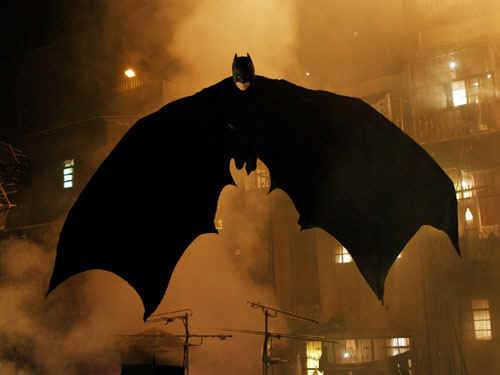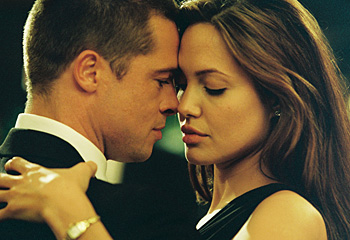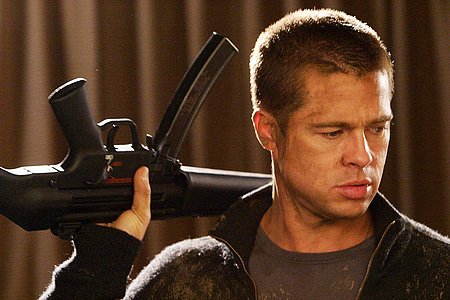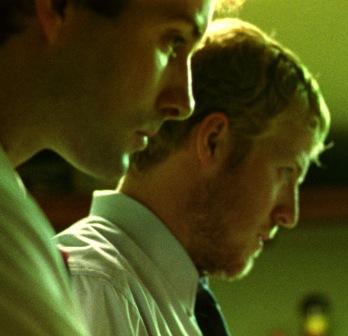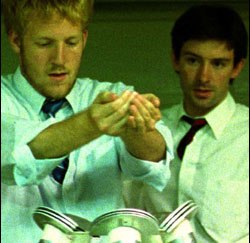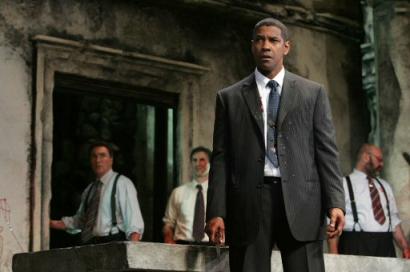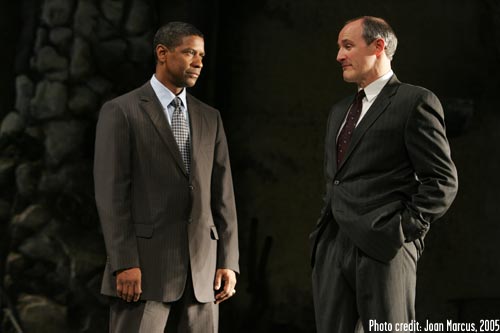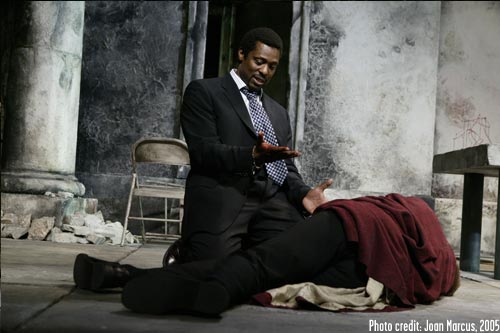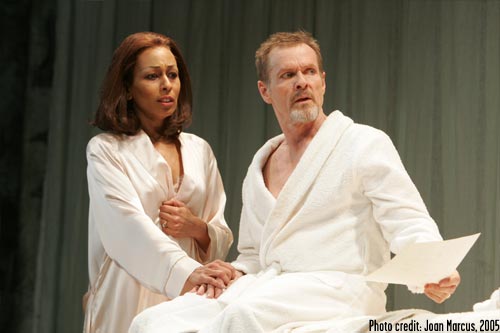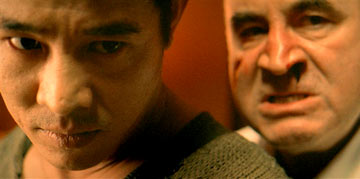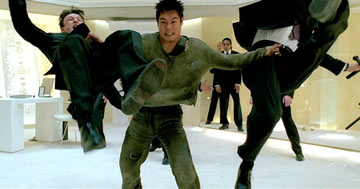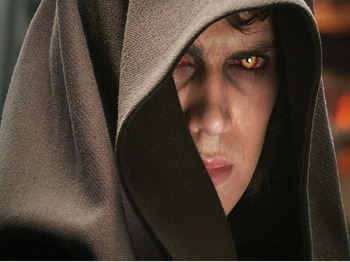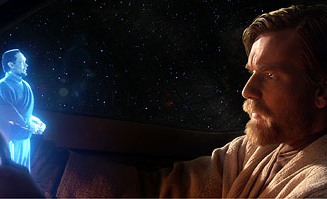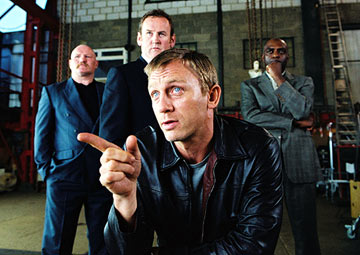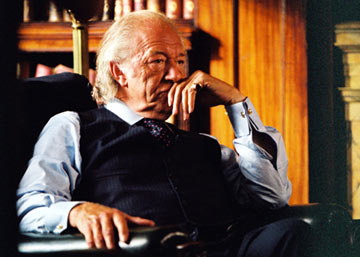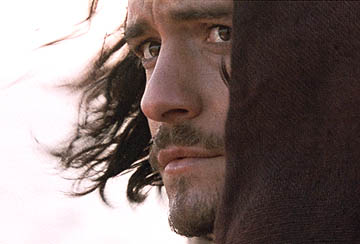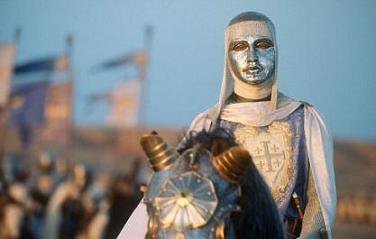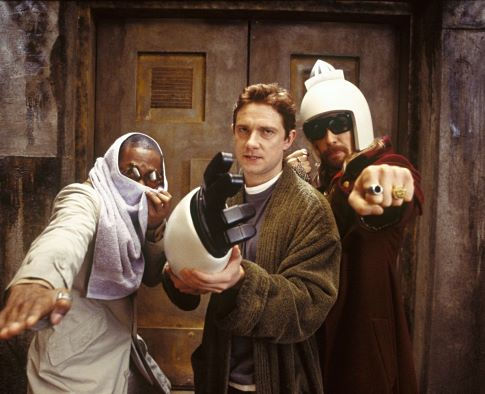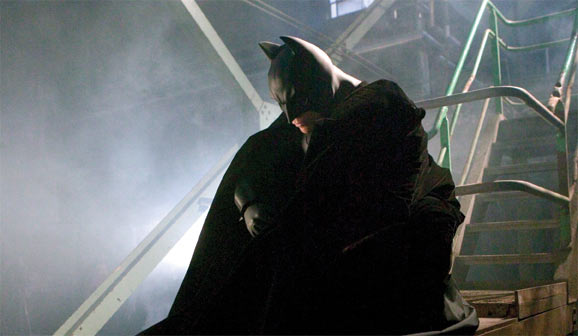
This just in from the Gotham Gazette: Much of the city’s criminal element are packing off for Metropolis to try their luck with Supes…cause, well, this “Bat Man” fellow is just plain terrifying. Yes, y’all, I’m happy to report that, while Chris Nolan’s Batman Begins has some minor problems — each character gets a few clunky lines and the final action sequence isn’t all that memorable — this is the Batman movie that fans of the Dark Knight have been waiting for. There’s no Schumacher statuary in this Gotham City, and nary a Burtonesque Batdance to be had. Nope, this is just straight-up Frank Miller-style Batman, scaring the bejeezus out of the underworld in his inimitable fashion. [Spoilers to follow.]
Going in, I was mostly afraid that all the ninja training and Liam Neeson speaking in Qui-Gonisms that marked the trailers was going to take up half the film. But, to its credit, Batman Begins moves at a surprisingly brisk clip, interspersing Bruce Wayne’s travels in the Orient (as we begin, he’s doing hard time in a Eastern prison) with flashbacks of various fateful moments in his early life. Bale and Neeson in particular are encumbered by some potentially ponderous dialogue here — fear is the mindkiller type stuff — but they do well with it (as does Michael Caine, Gary Oldman, Cillian Murphy, Tom Wilkinson…everybody, really, even Katie Holmes.)
And, when Wayne gets back to Gotham, the film really takes flight. If the message boards are any indication, some of the fanboy nation are ticked that you never get a really good look at Bats in any of the fight sequences — he’s always flitting from shadow to shadow or bringing a beat-down from above. But I for one loved it…as seen from common-thug-level, this incarnation of Batman is — finally — downright scary. (And, speaking of scary, the Scarecrow has a devilishly creepy introduction here.) Whatsmore, Nolan and screenwriter David Goyer wisely play up the “Bruce Wayne, billionaire playboy” angle too, which is as important a subterfuge as Clark Kent’s bumbling around the Daily Planet.
Problems? Like I said, yeah, a few. The Batmobile chase scene is a bit gratuitous, and the final action extravaganza isn’t all that involving. (Also, as one astute AICN reader pointed out, the microwave emitter scenario should have had a much more disastrous effect on the “bags of mostly water” surrounding it.) I’d have liked to see even more of the Fear-vision (particularly as that whole sequence reminded of me of Swamp Thing’s visit to Gotham in the Alan Moore years.) It seems like calling in the “back-up” would likely give away the location of the Batcave. Taking out Wayne Manor was a bit extreme. And, to my mind, Batman never really needs a love interest, aside from Catwoman, Poison Ivy, or the like.
But these are all quibbles. In the big picture, Batman Begins is a rousing success, and I want to see Batman Continues next-to-immediately…particularly after that you-know-what at the end. (!) After all, even with the considerable star power on display here, Gotham’s still one card short of a full deck…
